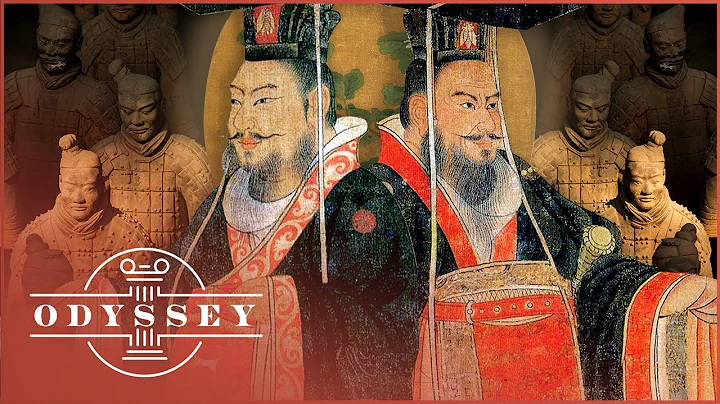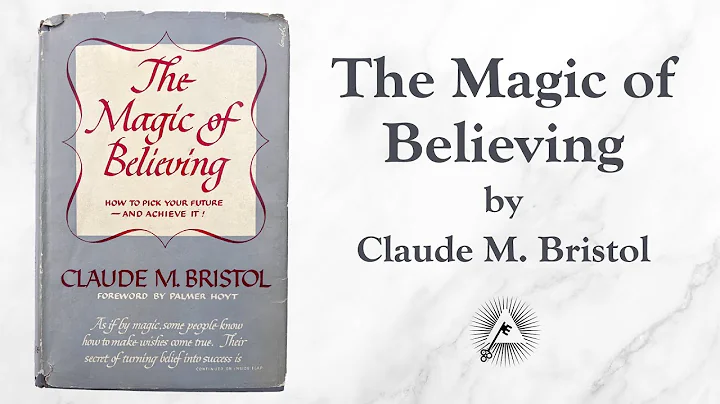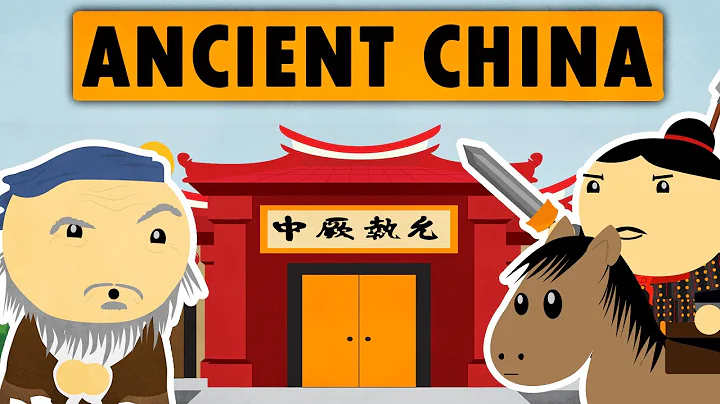(East-West Question) Special Planning on the Root of Civilization (2) Part 2: Yao Zhongqiu: Why is it said that "the unity of nature and man" has shaped the root of Chinese civilization from the deepest level?
China News Service Beijing, January 24th Question: Why is it said that "the unity of nature and man" has shaped the foundation of Chinese civilization from the deepest level?
- Exclusive interview professor Yao Zhongqiu, School of International Relations, Renmin University of China
author Cui Bailu


The relationship between heaven and man has always been an important philosophical proposition for the Chinese. The idea of "harmony between man and nature" formed in the process of exploring this relationship has become a common spiritual pursuit of Chinese people throughout the ages, and has also run through all stages of China's historical development.
"'Heaven' in Chinese philosophy is the whole of all things that are endlessly alive." Yao Zhongqiu, a professor at the School of International Relations at Renmin University of China, recently accepted an exclusive interview with China News Service's "East-West Question" and said that the concept of respecting heaven and "the unity of nature and man" Concepts have shaped the essence of Chinese civilization from the deepest level, bringing the Chinese people’s positive outlook on life , inclusive outlook on civilization, and humanistic and moderate outlook on ecology, making Chinese civilization “extreme and long-lasting”.

In December 2017, in Zhangcun Village, Sikou Town, Wuyuan County, Jiangxi Province, in the fog in the winter morning, the picture composed of distant mountains and close water, Huizhou ancient houses, fishermen, etc. was like an ink painting of the unity of nature and man. Photo by China News Service reporter Hu Dunhuang
The interview transcript is summarized as follows:
China News Service reporter: As an important idea in Chinese philosophy, what kind of historical development did the formation of the idea of "unity of man and nature" go through?
Yao Zhongqiu: To understand the relationship between heaven and man, we must first understand what "heaven" is. In the history of the evolution of human civilization, there was a very important spiritual breakthrough, that is, as many small-scale groups gathered into large-scale political bodies (wide-area countries), human beliefs experienced from the worship of a local single god to a compatible polytheistic worship system. breakthrough. In the West, a religion has been formed in which a "main god" governs many gods; in China, among the Five Emperors, Zhuanxu and Emperor Yao continued to carry out "Jedi Tiantong" (that is, heaven and earth, gods and humans perform their respective duties without interfering with each other) Their efforts eventually formed a religion in which "Heaven" governs many gods, and established the ritual of respecting Heaven.
In this regard, there are detailed records in classics such as " Shangshu " and "Guoyu·Chu Yuxia". For example, the opening chapter of "Shangshu" mentions "Qin Ruo Haotian ", which means to respect heaven and act according to law. Since then, "Heaven" has become the biggest object of belief for the Chinese people. Respect for Heaven, as the foundation of Chinese religion , has shaped the root of Chinese civilization from the deepest level. Since then, China has been born as a civilization and political community. Therefore, understanding respect for heaven as the most important foundation in the spiritual life of Chinese people can basically grasp the root of Chinese civilization.
China News Service reporter: From Qian Mu "The Possible Contribution of Chinese Culture to the Future of Humanity" to Ji Xianlin "New Interpretation of the "Unity of Nature and Man"", many scholars have spoken highly of the idea of "Unity of Nature and Man". . How do you interpret "harmony between man and nature"?
Yao Zhongqiu: "Unity of man and nature" is a very important concept in traditional Chinese culture and is deeply rooted in the hearts of the people. To accurately understand its meaning, one needs to return to the classics. Confucius expressed the nature of heaven: "What can we say about heaven? How can the four seasons move and all things come into being? What can we say about heaven?" "Heaven" in Chinese philosophy is the whole of all things that are endlessly born, including gods, all things and humans. . The fundamental attribute of Heaven is that it is speechless and impersonal. Therefore, Confucius described "only heaven is great", heaven is so great that there is nothing outside, and everything is in heaven.
Therefore, "the unity of nature and man" is not only a factual description, that man is in heaven, and man and nature are in a state of unity; it is also a moral commandment. Born as a man, he is endowed with "nature", that is, birth and growth. It is man’s “vocation”. "The Doctrine of the Mean" says at the beginning: "Destiny is called nature, and spontaneity is called Tao." This is what it means. When human beings work hard, they can fulfill their own nature, the nature of people, and the nature of things, from near to far, and finally praise the transformation and development of heaven and earth, participate with heaven and earth, and achieve the moral life realm of the unity of nature and man. Of course, this is a never-ending process.

In January 2017, the Miao dance drama "Butterfly Mother" premiered at the Guiyang Grand Theater in Guizhou Province. The dance drama revolves around the eternal theme of "life", expressing respect for life and the eternal praise of "the unity of nature and man". Photo by China News Service reporter He Junyi
China News Service reporter: After thousands of years of historical changes, the idea of "harmony between man and nature" has been inherited and continuously developed. What kind of civilizational logic does it contain?
Yao Zhongqiu: Jingtian has shaped the lives of Chinese people and shaped the entire Chinese civilization. The most important words in our daily life and political and social life all have the word "Heaven", such as Tianxia, Tiandao, Emperor, destiny, talent, nature, sound of nature, etc. I would like to talk about two points here.
First, the Chinese people have a positive outlook on life. Why are Chinese people so hard-working and positive? The root lies in the belief in respecting heaven. " Yi Zhuan " says: "Heaven moves vigorously, and a gentleman strives to constantly strive for self-improvement." Heaven is constantly moving, and people in heaven should also continue to move forward, be positive, establish themselves and others, and achieve themselves. talent.
Second, the inclusiveness of Chinese civilization. The characteristic of heaven is that it is vast and encompasses everything. In religion, heaven contains all gods, including foreign gods. After other world religions were introduced to China, they were integrated into China and became part of Chinese culture. Religious wars have never occurred in Chinese history. This is a miracle in the history of human civilization and deserves serious study. How to solve the seemingly unsolvable religious conflicts in today's world, the Chinese people's belief in respecting heaven will be one direction.
Politically, China has formed a multi-ethnic symbiosis pattern in its long history. For most of its history, China has been the largest single political entity in the world. For thousands of years, this community has absorbed different ethnic groups and made the Chinese nation great. At the same time, Chinese civilization has a "kingdom without outsiders" and is tolerant of others, actively accepting foreign knowledge, technology, art and even customs. It is precisely because of the inclusiveness brought about by this respect for heaven that Chinese civilization has achieved "greatness and longevity".

In December 2021, the 70th anniversary commemoration of the National Unity Oath Monument was held in Ning'er Hani and Yi Autonomous County, Pu'er City, Yunnan Province. Photo by China News Service reporter Liu Ranyang
China News Service reporter: How does the Western world view the relationship between heaven and man? What are the similarities and differences between China and Western countries in this regard?
Yao Zhongqiu: What most civilizations outside China believe in is a personal God, a specific transcendent being, prominently represented by speaking to people. For example, the opening chapter of " Bible·Old Testament " reads: "God said There also needs to be light, so there is light. "God has its own independent entity apart from man and all things. Therefore, in the West, God and man are completely separated, and it is absolutely impossible to "unify God and man." God has absolute authority over man and promulgates complete laws to man through words. He can punish man and man must obey them absolutely. In this way, belief in God has become the most important issue in life, and religious issues have become the core issues of Western civilization, so much so that great political scientists such as Huntington have also fallen into the idea that " clash of civilizations" is a "conflict of religions" trap.
Comparing different civilizations can help us understand the nature of heaven more clearly. China's sky is different from the main god worshiped by the ancient Greeks and Romans , and it is also different from the only true God worshiped by Judaism and Christianity. Heaven is the totality of all things that are constantly coming into being. Humans are among them, and Heaven does not say anything. Therefore, there is actually no belief in Heaven. The Chinese just take the law from Heaven and live independently. Therefore, Chinese people's lives are highly autonomous, and life, social, and political problems must ultimately be solved by people themselves. Therefore, Chinese civilization has always been people-centered.
Therefore, the biggest objects of worship in Chinese and Western civilizations are different. One is heaven and the other is personal God. Understanding the differences between Chinese and Western civilizations can ultimately be traced back to the fact that "Heaven" has no personality, while "God" does have personality.
China News Service reporter: General Secretary Xi Jinping pointed out that "persist in combining the basic principles of Marxism with China's specific reality and with China's excellent traditional culture."What are the new theoretical and practical developments of "unity of man and nature" in contemporary times? What kind of reference can it provide to promote the progress of human civilization?
Yao Zhongqiu: There are many similarities between the "unity of nature and man" thought centered on respecting heaven and Marxism, which are mainly reflected in the following aspects.
First, the spirit of materialism. Under the concept of the unity of nature and man, heaven is the totality of all things that are constantly born, and there is no other transcendent world; the gods worshiped by the Chinese are also "materialistic". The so-called "unpredictable yin and yang are called gods." Ancestors and saints are human beings, and gods are The world is a world of distant people and things, without absolute will or omniscience and omnipotence.
Second, regard equality as a fundamental political value. "Only heaven and earth are the parents of all things." Human beings are born equal to each other in heaven. As early as the Warring States and Qin Dynasty, through the establishment of the direct rule mechanism of the county system and the elimination of various aristocratic forces, China realized the equality of all citizens in politics and law. “Princes and generals should be content with each other” is a fundamental political value of both ancient and modern Chinese people and Marxism.
Third, develop productivity. Marxism believes that productivity is the driving force of historical development. The concept of "harmony between man and nature" actually represents the Chinese people's attitude of loving life and production: people's "boundary duty" is to live endlessly, and they should actively work to support themselves; the fundamental responsibility of the government is to let the people live better and have children. Dayu said: "Virtue is good governance, and government is to support the people." For this reason, the government must "righteousness and utilization", that is, develop productivity.

In May 2021, Longji Guzhuang Village, Longji Town, Longsheng Autonomous County, Guilin City, Guangxi held the annual plowing festival. Villagers carried out traditional farming activities such as occasional plowing, digging fields, and cutting field foundations on the terraces. Published by China News Service and photographed by Pan Zhixiang
Since modern times, China has accepted and realized the sinicization of Marxism. Using this ideological weapon that integrates the East and the West and combines with traditional Chinese culture such as "the unity of nature and man", China has achieved independence and national development within the capitalist -imperialist system, and is committed to solving the problems facing the world today. Many issues, such as the issues of inclusivity, equality, development productivity, etc. mentioned earlier.
In addition, the concepts of respecting heaven and the unity of nature and man are also the most profound philosophical foundation of the Chinese people's ecological outlook. Zhang Zai, a Confucian scholar of the Song Dynasty, said in " Xi Ming ": "Qian is called father and Kun is called mother; I am indifferent to you, but I am in the middle. Therefore, I am the barrier between heaven and earth; I am the commander of heaven and earth. Its nature. People are my compatriots; things are with me. "All things in heaven and earth are related to me, so we must "be kind to the people and love things." At the same time, China’s ecological outlook also focuses on a humanistic perspective. "Only heaven and earth are the parents of all things; only man is the spirit of all things." Man needs to use all things born of heaven and earth, but man is the spirit of all things. He must be responsible for future generations and all things in heaven and earth. Through self-restraint, he should use things according to their nature. In short, to realize that people and all things "have their own lives and maintain harmony", this is the humanistic and middle-of-the-road ecological view. (End)
Interviewee profile:

Yao Zhongqiu, professor at the School of International Relations at Renmin University of China and director of the Historical and Political Science Research Center, currently focuses on economics, historical political science, and the theory of modern world political systems. He has published more than ten translated works on Western legal affairs and many research works on Chinese economics and history. His latest published books are "China's Moment in World History" and "Great and Long-lasting: A History of Chinese Political Civilization".
Source: China News Network





















